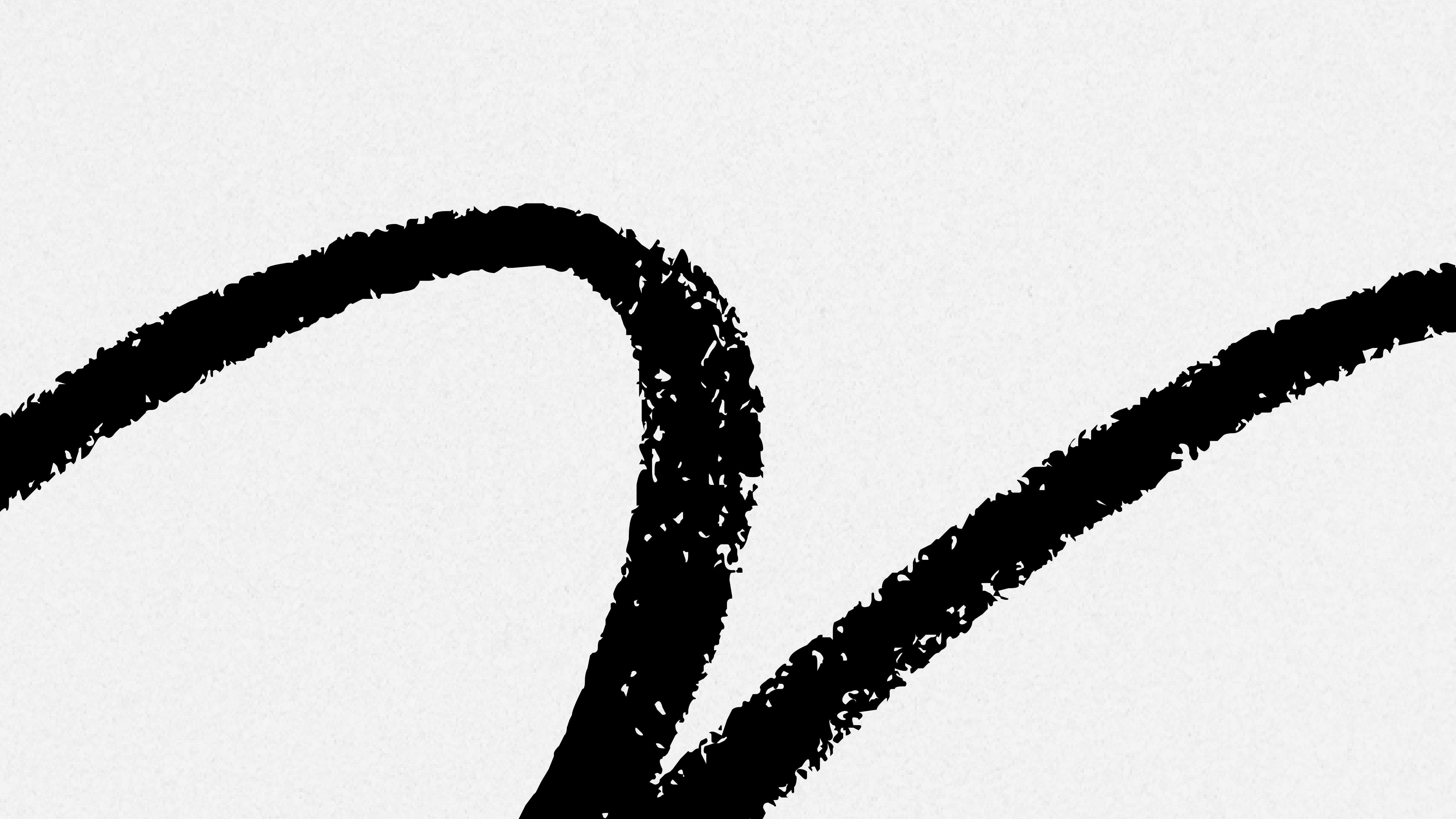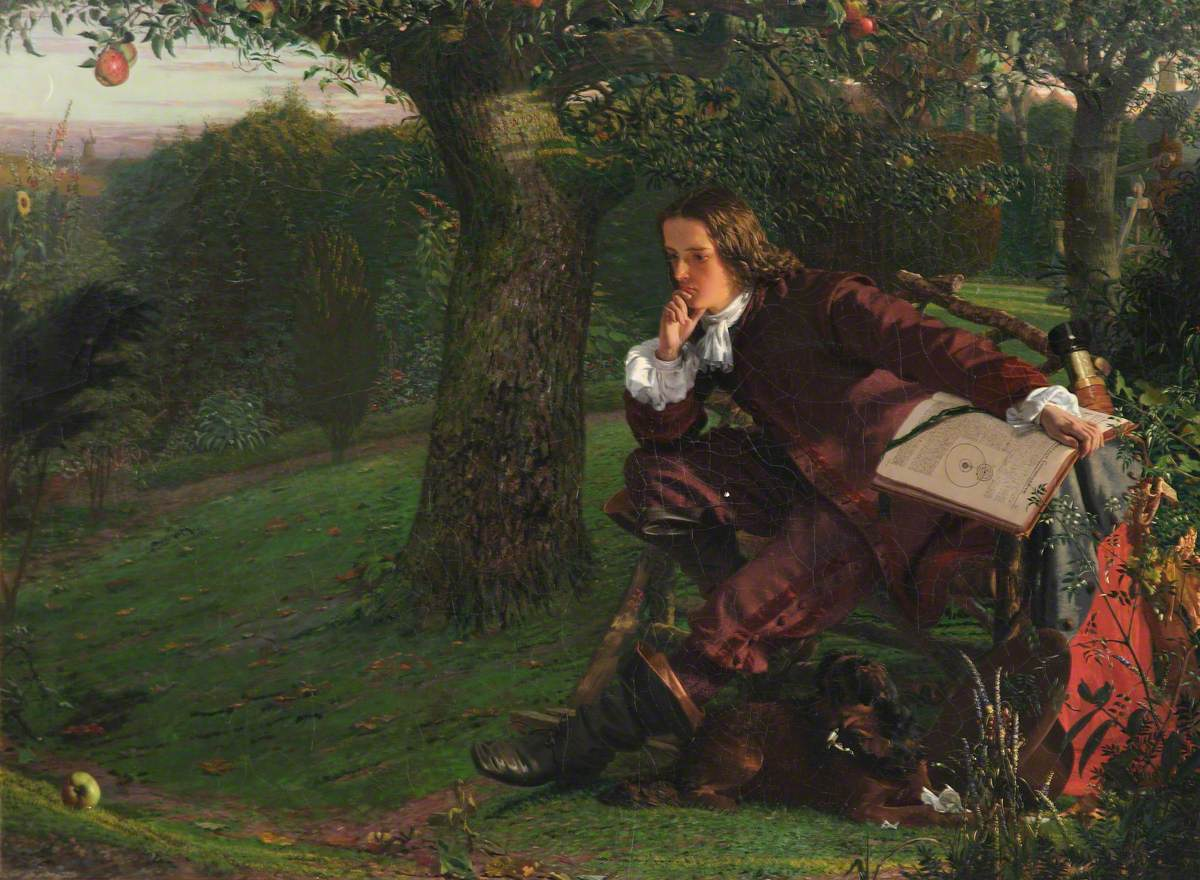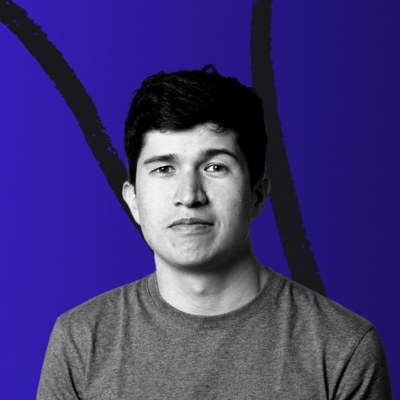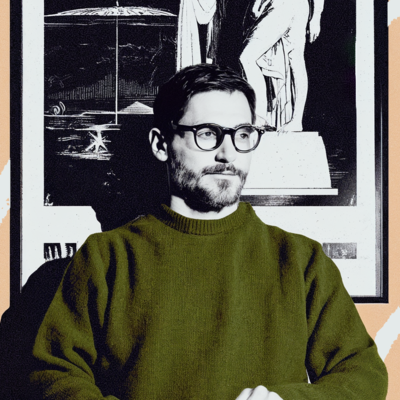
The Lucky Ones
How Isaac Newton conquered the loneliness and boredom of quarantine
April 7, 2020 · Updated January 20, 2026
📣 Hi! Dan here — just a quick note to let you know that I have decided to donate 50% of your subscription fee for this month to COVID relief efforts. Thank you all for your support, it means so much to me. I will update you once I have a list of causes and amounts. 📣
Take a look around you. What’s in the room?
In the room around me, I see the laptop I’m using to write this post. I see a bottle of CVS-brand hand sanitizer with added aloe. I see a plant that a friend bought for me last year after I went through a tough time. I see a half-empty bottle of Poland Spring lime seltzer, bought from a bodega on DoorDash. I see a half-burnt candle sitting in a glass cup. I see a stack of books.
It’s the same stuff I’ve been looking at now for three weeks. If you’re lucky enough to be healthy, this is the problem with the COVID quarantine: everything is the same. All. The. Time.
https://twitter.com/davejorgenson/status/1242305292592963586
Sameness is a new problem for most of us. Usually we escape it by changing our environment.
We leave the house every day. We see people, get into unfamiliar situations, travel to places we’ve never been before. The world is dynamic, alive, and changing all the time.
You can’t do this in quarantine.
You sleep on the same side of the bed in the same position every night. You wake up in the morning and brush your teeth standing in the same spot on the bathroom floor, you make your eggs in the same way, you sit down to your Zoom calls in the same chair with the same background.
When your environment never changes your world shrinks in front of your nose. What was once wide and open and full of possibilities now ends at your front door.
We are wired to notice change; when everything is static what is there to see?
.
Sir Isaac Newton discovered gravity while he was quarantined in the 1600s.
If you’ve heard that story, you also know its implicit directive: you should use this time to be productive. Newton did.
It’s easy to use Newton’s example to chest beat about how now is the best time to get stuff done. But that’s not the only lesson to pull from his story.
Stories, after all, are tools. We can make of them what we want.
Usually when we think about Newton we concentrate on what he achieved during quarantine.
But I think it’s more instructive to concentrate instead on how he spent his quarantine. Newton’s quarantine routine, if you will.
Because I think if we look closely at how Newton spent his time, it will give us a window into how to solve this problem of sameness.
.
In the summer of 1663, a great plague broke out in London. To escape its ravages a fortunate few left the city for the country.
One of the lucky ones was a young Isaac Newton who left Cambridge to stay at his family home, Woolsthorpe Manor.
Woolsthorpe is a manor in name only. It’s really an old side-gabled English farmhouse built of limestone. It’s not grand and ornate; it’s musty, pastoral, and fairly ordinary.
We don’t know how Newton felt about his first few days there, but we have to imagine that arriving at Woolsthorpe felt just as constricting and small to Newton as being trapped at home does for us today. Probably more so — Newton didn’t have the benefit of Zoom calls or Wikipedia to keep him stimulated during his quarantine.
For the foreseeable future he was resigned to a solitary existence at the remote home he’d grown up in.
.
When Newton arrived at Woolsthorpe, he started to do things that seemed, frankly, pretty weird.
He started a one thousand page commonplace book, which he named his Waste Book. He first began to use it for his reading notes, compiled from the hours and hours he spent in a small study he built for himself upon his arrival from London.
Soon he wasn’t just taking notes from books, he was conducting his own research. “He set himself problems; considered them obsessively’ calculated answers, and asked new questions.” He went so far that he actually invented an entirely new branch of mathematics during this period — calculus.
Thinking deeply is where he started. But not where he finished. Not content with resigning himself to his study, Newton started to poke and prod the corners of the house and the surrounding area.
He began to experiment.
.
Have you run any experiments in quarantine?
I have. I’ve tried meditating with friends every morning over Zoom. I’ve figured out how to make chicken soup from chicken thighs — without a strainer.
But I’ve also done weirder things. I started eating breakfast exclusively in bed. I began to use my bathroom for writing — I tried drawing a bath in the middle of the day and sitting in the warm water while I did my work. I dug a cape out of the back of my closet and jumped around on my bed with it. I smelled one of my walls, and tasted a book — just to see what would happen.
If you can’t change your surroundings, you can change how you interact with them. When you change your default behaviors, the world becomes full of possibilities again.
It unshrinks your environment. It eliminates the sameness.
Don’t believe me? Consider children.
When it comes to something like a book, an adult’s options are fairly limited. You or I might pick it up and read it. We might toss it on the floor when we’re done, or we might put it back on the shelf. We might give it to a friend, or carry it conspicuously under our arms on our way to work.
But that’s pretty much all of the appropriate options available to us. Children are different.
A child might take a book and bash it repeatedly on the floor. She might, and probably will, put the book in her mouth and munch on each end of it until it’s a soggy mess. She might put it on the floor and kick it around the house like a soccer ball. She might try to light it on fire, or throw it out the window, or put it in the bathtub and pour soap all over it.
A child’s options for interacting with a book are significantly larger than those of an adult. They haven’t learned what’s appropriate, or expected. They haven’t been habituated to a small set of behaviors.
But we lose this ability when we become adults. We only interact with our environment in a few default ways. Why is that?
The answer, it turns out, is simple:
When you’re busy and rushing around, you can afford to only use each object in your experience for a narrow set of purposes. The world is big and the time is short. Anything else would be too inefficient.
But in quarantine, the opposite is true. You have time to do things that you’ve never done before — that no one has ever done before. You have time to do silly things. Useless things. Whimsical things. Things that make absolutely no sense.
In short, you have time to experiment.
.
Newton, too, was doing odd experiments.
He stood in the rolling lawn of the Manor and stared at the sun’s reflection in a mirror for as long as he could stand it. Then, eyes still smarting, he stared at the wall in one of the house’s darkened rooms, trying to discover why the sun could cause the spots that danced back and forth in front of him.
He was fascinated with the nature of light and color. He wanted to know if colors were a property of objects or of mind or of something else. So he pushed a needle into his eye socket to investigate how it affected his vision.
He patiently investigated and experimented with everything around him. In doing this, Newton was, consciously or unconsciously, beating sameness into submission.
He wasn’t gazing listlessly at the static, unchanging farmhouse around him. He was an active participant in it, trying things that at any other time and for any other person would seem at best a waste of time, and at worst a little crazy.
Experimenting in this way undoubtedly helped Newton overcome the crushing sameness he felt all around him. But it also did something else for him.
As he conducted his solitary research, Newton was learning to see the same old things he’d grown up with — his family’s house, its garden, even the very sky above him — in entirely new ways.
.
Newton was preoccupied at Woolsthorpe with whether the laws that governed the heavens were the same as the ones that governed the earth.
In Greek cosmology, the heavens obeyed different laws than the earth did. It’s the only way the Greeks could explain the movements of the planets.
But newly armed with telescopes, a crescendo of scientists in Newton’s generation — names like Kepler, Copernicus, and Galileo — were beginning to challenge the notion of separation between the heavens and the earth. They were beginning to raise the possibility that the same laws that applied to the planets and the stars also applied to our everyday experience.
What Newton was looking for was a simple set of mathematical rules that could explain reality. And not just reality on the ground, we was looking for rules that could govern reality in the heavens too.
He didn’t completely formalize his theory of gravity at Woolsthorpe, but his time there helped him form its broad outlines. After so much thinking, and experimenting he found his answer in an apple tree planted in the gothic soil of Woolsthorpe Manor.
Here’s how his assistant recounted it:
“ … Whilst he was musing in a garden it came into his thought that the same power of gravity (which made an apple fall from the tree to the ground) was not limited to a certain distance from the earth but must extend much farther than was usually thought. ‘Why not as high as the Moon?’ said he to himself..”
In the dark orbs hanging from this particular tree, he saw a principle that would apply to matter of all kinds: from the tiniest spinning atom, to the stars.
From his garden musings, from his wild experimenting, and whimsical investigations, he figured out that there’s one single thing — one single force — that makes apples fall from trees, and makes the moon orbit the earth.
He saw all of these different things happening that seemed separate and he figured out how to explain them with one simple idea. He took something vast, complex, and inimitable, and explained it with one elegant principle.
And he did it because of his curiosity, and because of his patience. Because of his willingness to experiment, and push his mind past the point where others would normally go.
.
Let’s be clear. I’m not suggesting that if you start jumping on your bed, and tasting your walls, you’re going to invent calculus.
But what I am saying is that an open and experimental attitude might help us discover gravity of a different kind.
If you’re reading this, cooped up in your apartment and — like all of us — afraid for your health, afraid for your career prospects, afraid for your family, afraid for your 401k, and going crazy being inside all of the time then you are like Isaac Newton in 1663:
You are one of the lucky ones.
The question is: if we are lucky, what is our responsibility in this moment?
I think the answer is that our responsibility is to experiment with our habitual reactions to the situation around us.
What is your default reaction to this pandemic?
Is it fear? Is it a desire to run away?
Is it anger? Is it profound sadness?
Whatever it is, it’s completely normal. It’s expected.
But, if you want to, you can experiment with those feelings, too. You don’t have to do this in a heavy, guilt-driven way. Take a bath in the middle of the day. Stare at the sun if you want to. Call that person you’re angry at and apologize, even if it’s not your fault. Slip a note under your neighbor’s door with a drawing of a tic tac toe board, and the first space filled out. (Make sure you sanitize it first though.)
If you experiment enough, you might find that you’re able to move towards the fear, the sadness, and the anger, instead of away from it.
And maybe you can use it to help the people around you.
.
This situation is so big, it can feel overwhelming to even consider how to start helping other people.
Your personal power to resolve things seems too small. This is a planetary problem, not an individual one.
But what’s interesting, is that Newton discovered that the force of gravity in an atom is also very small.
But the thing about gravity is that everything has it. Everything. Has. Gravity. You have gravity. I have gravity. Everyone and everything is being pulled together with this tiny, invisible force.
When you add enough mass together, this little force becomes super strong. Strong enough to make planets move.
My hope is that when we all start to experiment with helping each other, we’ll discover a different kind of gravity:
We’ll discover that, even in isolation, we are pulled towards each other.
And I think that if we follow that pull, we’ll find that the forces that bind us together are stronger than the forces that keep us apart. That when we add enough individuals together, our collective strength will be enough to make planets move, too.
And, in a time like this, that will make all the difference.
This piece was edited by Paul Smalera.
Its recounting of Newton’s time in quarantine is pulled primarily from James Gleick’s excellent biography, Isaac Newton, as well as The Metaphysical Foundations of Modern Physical Science by E.A. Burtt.
I’m not a Newton historian. If I got something wrong, let me know and I’ll update it!
What did you think of this piece? Let me know in the comments below!
The Only Subscription
You Need to
Stay at the
Edge of AI
The essential toolkit for those shaping the future
"This might be the best value you
can get from an AI subscription."
- Jay S.
Join 100,000+ leaders, builders, and innovators

Email address
Already have an account? Sign in
What is included in a subscription?
Daily insights from AI pioneers + early access to powerful AI tools











Comments
Don't have an account? Sign up!